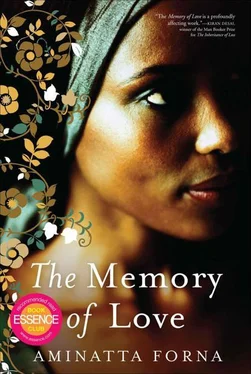Elias Cole grunts. His gaze flicks over Adrian and settles on the end of the bed.
Adrian stands up and moves into his eye line. ‘There are variants of the game. In the most popular the two people play the game repeatedly. That way they can learn each other’s responses, you see.’
‘Indeed I do, though I’m still not at all sure where you are headed with all of this. I did nothing wrong except to give Johnson what he asked for, which was a small amount of information. I did not lie, or manufacture evidence. Johnson was a police officer.’
‘Though you knew what kind of man he was.’
‘He was a police officer, for heaven’s sake!’
‘As I was saying, in this variant of the game, the same people play each other any number of times. They get to know how the other one is likely to respond, but also they get the opportunity to punish each other for past betrayals. So suddenly the game shifts quite dramatically.’
Cole does not respond, he is watching Adrian. Adrian looks directly into the void of his stare.
‘So let’s say that now we are talking about you and Julius. Could it be you were punishing him for a betrayal, one already committed?’
‘And what betrayal is that?’
‘The one you told me about the last time we spoke. For not including you in what was going on.’
Elias Cole gives a short, harsh and derisive laugh. ‘What? For not involving me in producing some rag of an underground newspaper?’
‘You seemed upset enough about it last time.’
‘I was angry with him precisely for getting me involved. For using my room and my typewriter. For letting me be arrested.’
Adrian is quiet for a moment. ‘For not trusting you enough to tell you what was really going on. You thought you were closer to him than you really were. But it turned out not to be true. Yansaneh, Kekura — they were Julius’s real, trusted friends and not you.’ He’s heckling the old man now. He ought, perhaps, to stop but he doesn’t want to. He throws in one final sentence. ‘So you gave Johnson your notebooks.’
‘Yes, I gave Johnson my notebooks. But not for the reason you suggest. Because Johnson had harassed and humiliated me.’
‘Did you feel better when you had done it?’
‘Of course not!’
Half an hour later Adrian walks down the corridor towards his apartment, thinking about Adecali and Elias Cole, two very different conversations. He hardly dares admit it to himself, but he’d rather enjoyed sparring with Elias Cole. The old man maintained that giving Johnson his notebooks did not amount to an act of betrayal and certainly he could tell himself that, he might even partly believe it. Johnson, after all, represented the law, the arm of authority. But Cole was holding back. He had cooperated with Johnson, but something that occurred around that time had created a bond which had lasted years after the event, of this Adrian felt reasonably certain.
As for the Prisoner’s Dilemma, the game theory had once comprised a seminar when Adrian was at university. In the present circumstances, as an analogy, it is remarkably apt. But what is most interesting about it is that, although at first glance self-interest and betrayal seem to be the winning choice, what happens when the game is played repeatedly among large numbers of people, or even by computers, is that altruism becomes the sensible recourse.
Adrian recalls the lecture theatre, the strip lighting and 1960s concrete flooring. His professor, what was the guy’s name? Quinnell. Proving, Quinnell had told them, rocking forwards on the lectern, that in any society good moral thinking and self-interest are one and the same.
There comes a time when the knowing makes itself known.
When they make love he finds he cannot bury himself deeply enough inside her. He pushes his face into her neck and tastes skin, salt and sweat. A leg is pressed against his cheek. Hands grip his arms. His chin fits in the dip above her collarbone. He reaches up and finds her calf, her ankle. Her hand slides between their two bodies and gathers his balls. He, who has ceased to breathe, exhales his soul.
Afterwards she plays with parts of him. Licks a nipple. Curls a hair around a forefinger. Inspects an insect bite and gives it an experimental squeeze. Grooming him, he teases her. Once she even scratched the back of his knee. Later, when he thought about it, he shook his head and swore to himself he had said nothing of the itch he felt there.
In these idle moments, to him anything but mundane, the physical separation between them ceases to exist.
And this is where he is when the knowing makes itself known. He is lying on his front across her bed, trapped by her leg cast across the back of his thighs. Outside the night-time rain has started, weighted drops tumbling out of the sky subduing all other sounds. When she rises to fetch a glass of water, he feels a moment of loss and he knows he never wants to be without her again and he says so. But she, standing with her back to him, fails to hear above the rain and the sound of pouring water and so gives no answer.
She turns around. ‘What’s the matter?’
He sees his mistake, struggles out of the terror the thought of rejection brought with it and repeats his words. ‘I want you to come with me when I leave.’
She sits and places a hand on his back. She is silent and he hates it, starts to slide towards the fear once more. ‘I don’t want that,’ she says.
He drops his gaze.
‘This is my home. This is where I want to live. I want to raise our children in this place .’ The last three words pronounced emphatically.
He is overtaken by relief. Aware of his breathing, of the wild thumping of his heart, he makes an effort to bring both under control. He pulls her to him. For now he doesn’t want to think about the rest. Nothing is simple, except this one thing, this feeling he has for her.
Children, she said. Our children . He has already forgotten the rest.
Outside the rain crashes down, dulling the senses. Next comes the thunder. Adrian closes his mind to everything but her touch.
For now everything else can wait.
An inventory of his clothes: T-shirts in various stages of wear, thirteen. Acceptable, five. Pairs of jeans, three. Good shirts, two. Kai slips on one of the shirts he last wore to the party after his high-school graduation and can scarcely button it across his chest. He places it on the pile of clothes by the door.
On his way to the British Council, he stops by Government Wharf, where bales of second-hand clothes are unloaded from ships. From a trader he selects two shirts, nearly new. Also a pair of trousers, creased but serviceable. He pulls his T-shirt over his head and changes into one of the shirts there on the street. The trousers he folds over his arm, pays the vendor and heads up the hill to the Council building. In the men’s toilets he changes into his new trousers and then doubles back to reception, where he explains to the girl behind the desk he has come to take the English language aptitude test. There are twelve other candidates in the room, though nobody he knows. The receptionist hands out the papers and leaves. The first three pages of questions are multiple choice. Select the correct verb-ending from the list below. Select the correct noun from the list below . A man in a grey three-piece suit chews his pencil, applies slow strokes of pencil to paper. Kai flips through pages. The last question requires a short account of a recent news item. Kai, who has not listened to the news in months, writes of the terracotta armies in China. He does not review his work but collects up his papers and leaves, handing them to the girl at reception as he goes.
Читать дальше












